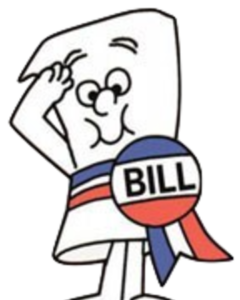The state Senate approved AB 1864, legislation that will create the Department of Financial Protection and Innovation (DFPI) to replace the existing Department of Business Oversight. The tougher regulator will have authority to bring both administrative and civil actions against previously unregulated industries, including debt collectors, fintech firms, credit reporting agencies, and merchant cash advance lenders. This legislation will also offer protections to Californians and small business owners who have or are close to having financial hardships. CAMEO and many of its members were part of a large coalition of small business advocates, lenders, and consumer groups that actively supported the bill.

CAMEO also supported SB 1157, which allows for positive rent reporting on credit reports that will help low-to-moderate income families build credit.
Other bills of interest (updated 9/10)
Two bills, AB 2257 and AB 323, provide more exemptions to AB 5 which would allow more leeway for newspaper delivery, youth sports coaches, artists, interpreters, freelance writers, appraisers, insurance field representatives, and a range of people in the music industry to work as independent contractors.
SB 1447 establishes a Small Business Tax Credit for businesses that hire additional workers from July through November, as compared to the businesses’ employment from April through June. To qualify, a business must have had 100 or fewer employees on December 31, 2019, and have experienced a 50% reduction in revenues from April through June 2020 as compared to the same time period in 2019. Each additional employee is worth $1,000, up to a maximum of $100,000 per taxpayer. The net increase in jobs is calculated. The tax credit is capped at $100 million in total. SB 1447 was signed by Governor Newsom on September 9, 2020.
Governor Newsom also signed SB 1577, a bill sponsored by Assemblymember Autumn Burke. The legislation allows small businesses to exclude PPP loans from gross income for state taxes, thus preventing surprise tax bills and easing administrative burdens.
